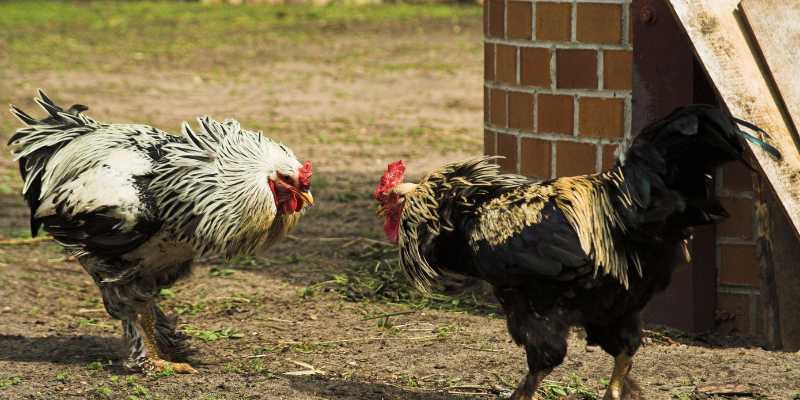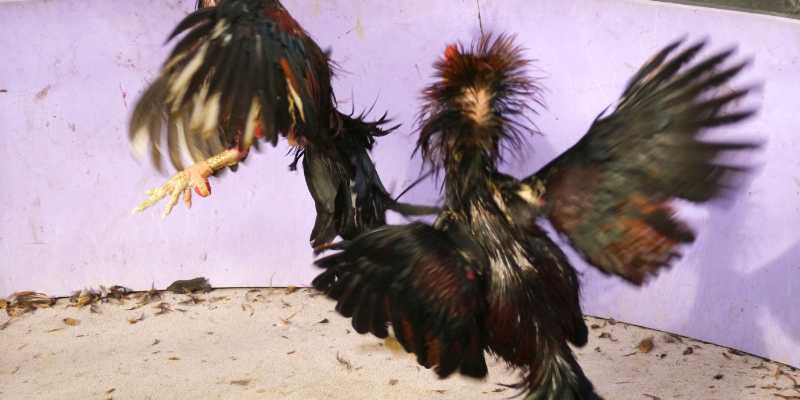Chicken training is not only a fun activity but also an important part of raising and developing chicken breeds. Training chickens not only helps them become smarter but also improves their quality of life, while creating interesting moments for the breeder. In this article, mm88.center we will delve into chicken training methods from basic to advanced.
Theoretical basis of chicken behavior
Before getting started with specific training techniques, it is important to have a good understanding of chickens’ natural behavior. Chickens are highly social animals and tend to work in flocks. This greatly affects how they learn and interact with people and other chickens.
Chickens have a very good memory and can recognize different shapes and sounds. Therefore, using audio and visual cues during training can be very effective. They also have the ability to sense the mood of their owners, so your attitude and approach can make a big difference.
The Importance of Understanding Chicken Behavior

When you understand your chickens’ behavior, it becomes easier to develop appropriate training methods. This understanding will not only help you interact more effectively with your chickens, but will also reduce stress and anxiety for both you and your chickens.
During training, pay attention to how your chicken responds to your cues. If you find that they can perform commands quickly and accurately, that is a sign that you have won them over. On the other hand, if your chicken seems nervous or disobedient, you need to reconsider your approach or adjust the environment.
Factors affecting chicken behavior
Many factors can influence chicken behavior, including environment, nutrition, and care. A comfortable and safe environment will promote positive behavior in chickens and make them more receptive to learning.
Proper nutrition also plays an important role. A nutritious diet will help the chicken stay healthy, thereby improving its ability to absorb and remember lessons. Finally, the feelings and relationship between the owner and the chicken will determine the level of success in the training process.
Basic training methods
Starting to train chickens can be a challenge, but with the right methods, you will find that it is not difficult at all. Here are some basic training methods that you can apply to your chickens.
Sound recognition training
Sound is one of the most effective ways to communicate with chickens. You can start by using simple sounds like “cheer” or “click” to guide them.
Make a specific sound whenever you want your chickens to do something, such as calling them back to their coop or instructing them to walk. After a while, they will automatically recognize the sound and follow the command without you having to repeat it.
Habitual training
Chickens are creatures of habit. Establishing a training schedule and sticking to a certain time of day will help your chickens learn better. You can set up short, consistent training sessions every morning or afternoon.
Training sessions should not be too long. Keep them short and interesting, about 10-15 minutes is enough. If the chickens get bored, they will lose interest and learn nothing.
Use food as a reward
One of the most effective ways to train chickens is to use food as a reward. Chickens are wired to seek out food, and if you connect their actions with receiving a reward, they will quickly learn.
When your chicken successfully performs an action you ask of them, immediately reward them with a tasty treat. This will not only encourage them to follow your command, but will also create a positive experience for them.
Practice patience and consistency
Patience is key when training chickens. Chickens may not always understand your commands right away. Give them time to adjust and practice.
Also, be consistent throughout all training sessions. Changing methods or commands will confuse the chicken and make it difficult to remember. So make sure you always use the same command for the same action.
Develop advanced skills for chickens
Once your chicken has mastered the basics, you can move on to more advanced skills. This is where creativity and self-challenge will help you discover more interesting things.

Lap training
Circle running is one of the most fun skills you can teach your chickens. To do this, you need to have a safe, open area for your chickens. Start by placing food at one end and have your chicken run in a circle to the food.
Gradually increase the difficulty by creating obstacles or moving food around. This skill will keep your chickens active and entertained, while also training them to be agile and flexible.
Spinning Training
Spinning is a fun skill for chickens to learn. To start, hold a treat in front of your chicken and gently move it in an arc. When your chicken spins in the direction you indicate, give them a treat immediately.
Not only does this method help your chickens become more agile, it also creates a fun game for both you and your chickens. You can have small competitions with other friends to see who can spin the chicken faster.
Hoop training
Hooping is a fun skill and is quite easy to do. You will need a plastic hoop or any similar shaped object. Start by placing the hoop at a low height and encourage the chicken to hop through the hoop to get the food.
Gradually increase the height of the hoop to challenge your chickens more. This skill not only helps your chickens exercise physically, but also creates fun moments when they complete the challenge.
Daily practice
To achieve advanced skills in chickens, daily practice is essential. Spend at least 15-20 minutes a day training and practicing skills. This will not only help the chickens memorize the moves but will also help you create a stronger bond with them.
These activities also bring many health benefits to the chickens. They will become more active, healthier and happier in their life.
Important notes during training
While training chickens can be a lot of fun and rewarding, there are a few important things to keep in mind to get the most out of it.
Choose the right time
Timing is very important. Choose a time when your chicken is relaxed and in a good mood, such as after a meal or when the weather is cool. If you try to force your chicken when they are tired or stressed, you will have a harder time training them.
Monitor chicken health
The health of your chickens is an important factor in their ability to learn. Make sure your chickens are in good health before you start training. If you notice that your chickens are tired or unwell, stop training until they have fully recovered.
Don’t forget to enjoy the fun moments
Training is not just a job, it should be a fun activity. Enjoy every moment with your chickens, because your excitement and joy will be transmitted to them and create a positive environment for both of you.
Combining theory and practice
Both theory and practice are important in chicken training. Keep learning new methods and improving your skills. This will help you become a better trainer and produce smart and healthy chickens.
Conclude
Training chickens requires not only knowledge but also patience and love. Through this article, we hope you have a general and detailed view of effective chicken training methods. Start today to discover the hidden potential of chickens and enjoy interesting moments with them!


